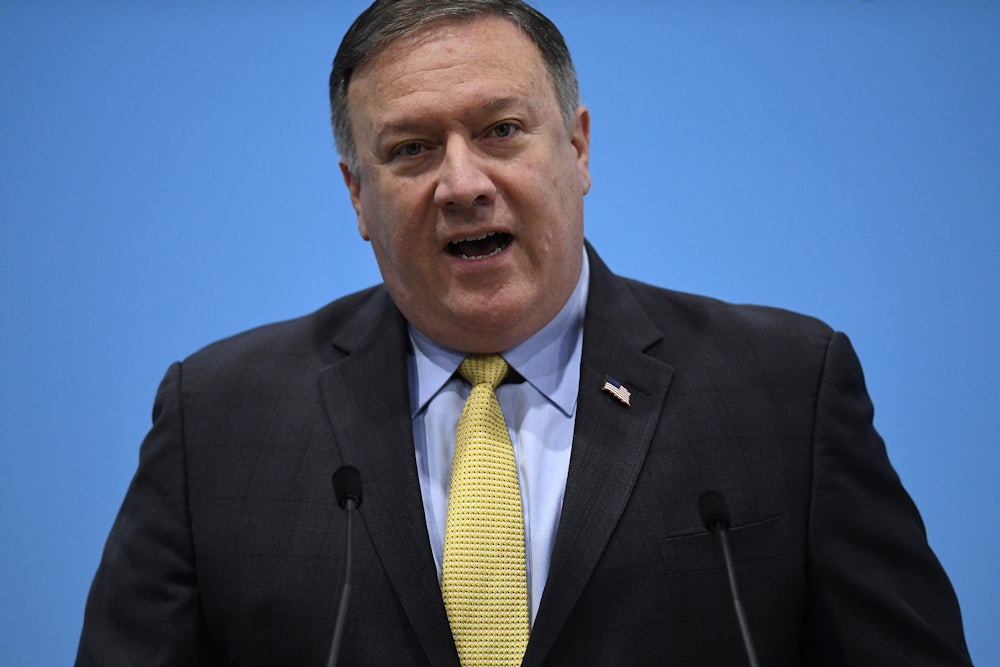The United States is restoring economic sanctions on Iran on Monday at midnight. The new policy is an outgrowth of the Trump administration’s withdrawal from the 2015 nuclear agreement.
On Sunday, Secretary of State Mike Pompeo argued the sanctions are necessary to pressure Iran to change its foreign policy. “We’re very hopeful that we can find a way to move forward, but it’s going to require enormous change on the part of the Iranian regime,” Pompeo said. “They’ve got to behave like a normal country. That’s the ask. It’s pretty simple.”
Among the American demands are that Iran stop supporting insurgent groups in the Middle East (notably Hezbollah and Hamas), that it withdraw from Syria, that it release American citizens from captivity, and that it stop nuclear enrichment (which is in fact allowed under the Iran nuclear agreement and international law).
Pompeo did stop short of calling for regime change, a policy advocated by some hawks in the Trump administration. As the New York Times noted, “senior administration officials said they were simply looking for a change in behavior from Tehran, not for a change in government.”
This increased pressure on Iran puts the United States in tension with its European allies, who support the continuation of the existing nuclear deal. America also doesn’t have the support of Russia or China. It’s unclear how effective American sanctions can be without co-operation from European allies or other world powers.
